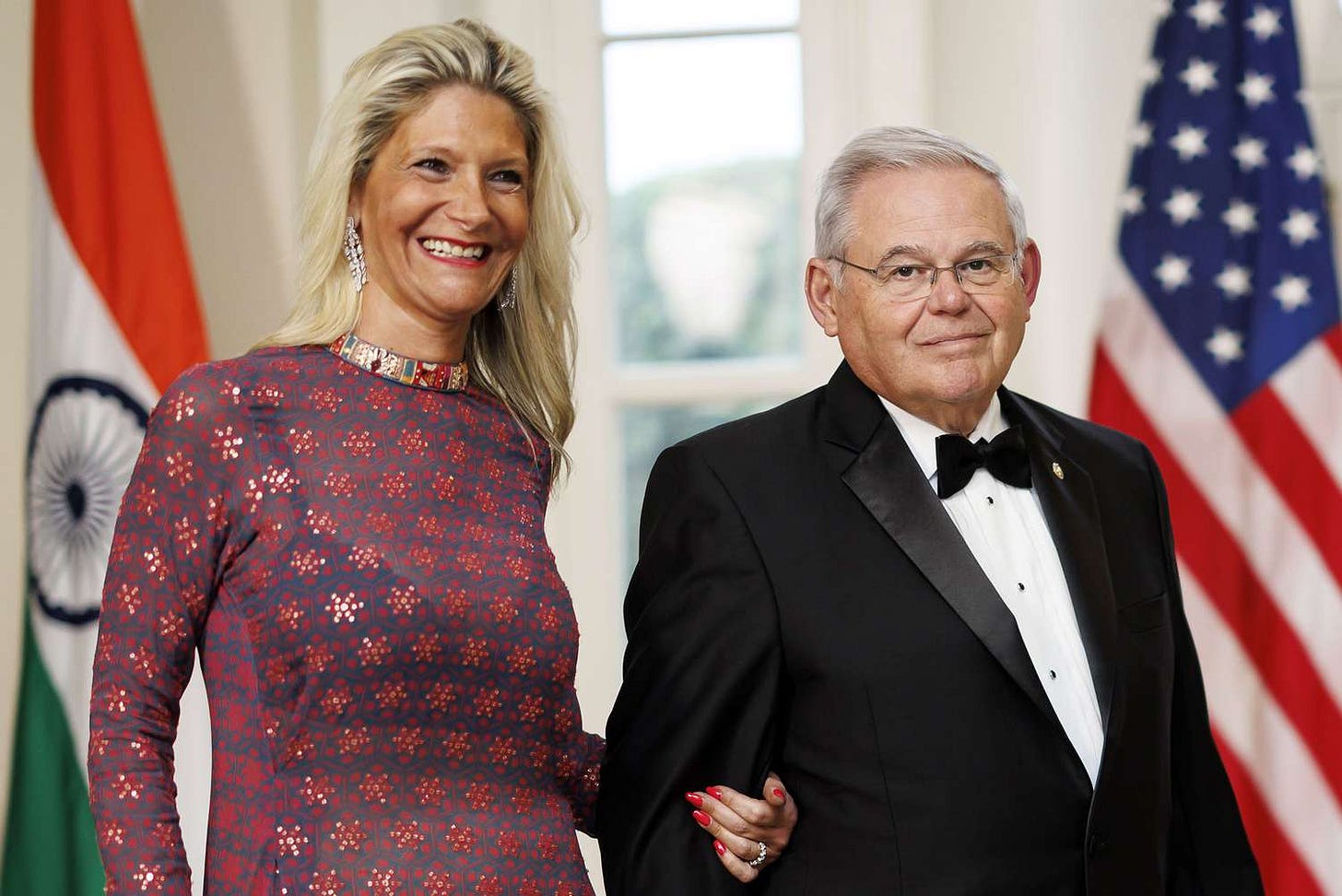Menendez is in a "Stream" of Trouble
While the Supreme Court has slightly narrowed the definition of "official act," for extortion, it is still very broadly defined
Senator Robert Menendez and his wife Nadine Menendez have been indicted on counts including what is known as “Hobbs Act” extortion, under 18 U.S.C. § 1951(b)(2). While the word “extortion” calls to mind violence and threats, only part of the statute contemplates that kind of extortion. Another part criminalizes “extortion under color of official right.” No violence, or threats, required. That’s what Menendez is charged with. It’s going to be tough for him to defend.
The government has to prove that Menendez “used the power and authority of his office in order to obtain money, property, or something of value from another to which neither that public official nor that government office has an official right.” Those are the likely jury instructions that the court will read to the jury…or something pretty close to that.
In McDonnell v. United States, in 2016, the Supreme Court defined the term “official action,” which is a component of the quid pro quo element of honest services fraud and federal-program bribery. It held that an “official act”…
“must involve a formal exercise of governmental power that is similar in nature to a lawsuit before a court, a determination before an agency, or a hearing before a committee. It must also be something specific and focused that is “pending” or “may by law be brought” before a public official. To qualify as an “official act,” the public official must make a decision or take an action on that “question, matter, cause, suit, proceeding or controversy,” or agree to do so. That decision or action may include using his official position to exert pressure on another official to perform an “official act,” or to advise another official, knowing or intending that such advice will form the basis for an “official act” by another official. Setting up a meeting, talking to another official, or organizing an event (or agreeing to do so)—without more—does not fit that definition of “official act.” McDonnell, 136 S. Ct. at 2371–72.
So, even though the Supreme Court narrowed the definition of “official act,” the allegations against Menendez still seem to fit. In fact, when you read the indictment, it almost seems like Menendez (allegedly) read McDonnell, and then (allegedly) did all the things that fit within the new definition of “official action.” The indictment alleges he did a lot more than setting up meetings, talking to officials, or organizing events. According to the indictment, Menendez tried to influence a pending criminal investigation/case. He allegedly called up other officials (like in the USDA) and allegedly exerted the requisite pressure. Obviously, SDNY prosecutors know the McDonnell case chapter and verse. I wonder if, as they were investigating Menendez, they did a fist pump every time they found Menendez did something (allegedly) that fit within the McDonnell “official action” definition. Still, Menendez’s defense will surely be McDonnell-based: that he just set up meetings and talked to officials, and nothing more, and there’s nothing criminal about that.
Menendez will also likely argue that there was no “quid pro quo”—an element of the crime that means “this for that.” The “this” would be the payments to Menendez. The “for” is “in exchange for.” And the “that” is Menendez’s official acts. I’ve defended these cases, and the quid pro quo element is not only relatively easy to prove, but the defendant’s alternate explanation for the quid pro quo is often really silly. Here’s what I mean: The government is alleging that people gave Menendez things like gold bars, in exchange for Menendez doing official acts that helped those people. The defendant’s explanation might have to be: (1) Someone gave me gold bars; and (2) I just happened to take these official acts that benefited that someone. And it’s just a coincidence! See? Not a convincing argument.
It gets worse for the defendant in a Hobbs Act extortion case. The government doesn’t really even need to prove much of a “quo.” Under the “retainer theory,” otherwise known as the “stream of benefits” theory, the government can satisfy the quid pro quo element if a defendant agrees to receive payments in exchange for his commitment to perform official acts “as the opportunities to commit those acts arise.” In other words, the government doesn’t have to prove that the specific official acts that the defendant agreed to corruptly perform were identified at the time that the quid pro quo arrangement first comes into existence, nor does the government need to prove that the defendant intended to link a particular official act to a particular payment. Rather, the unlawful quid pro quo exists as long as the defendant intends to perform official actions generally in exchange for payments, as the opportunities for those corrupt actions arise through time. If the allegations in the indictment are true, this will be a tough case for the defense.





